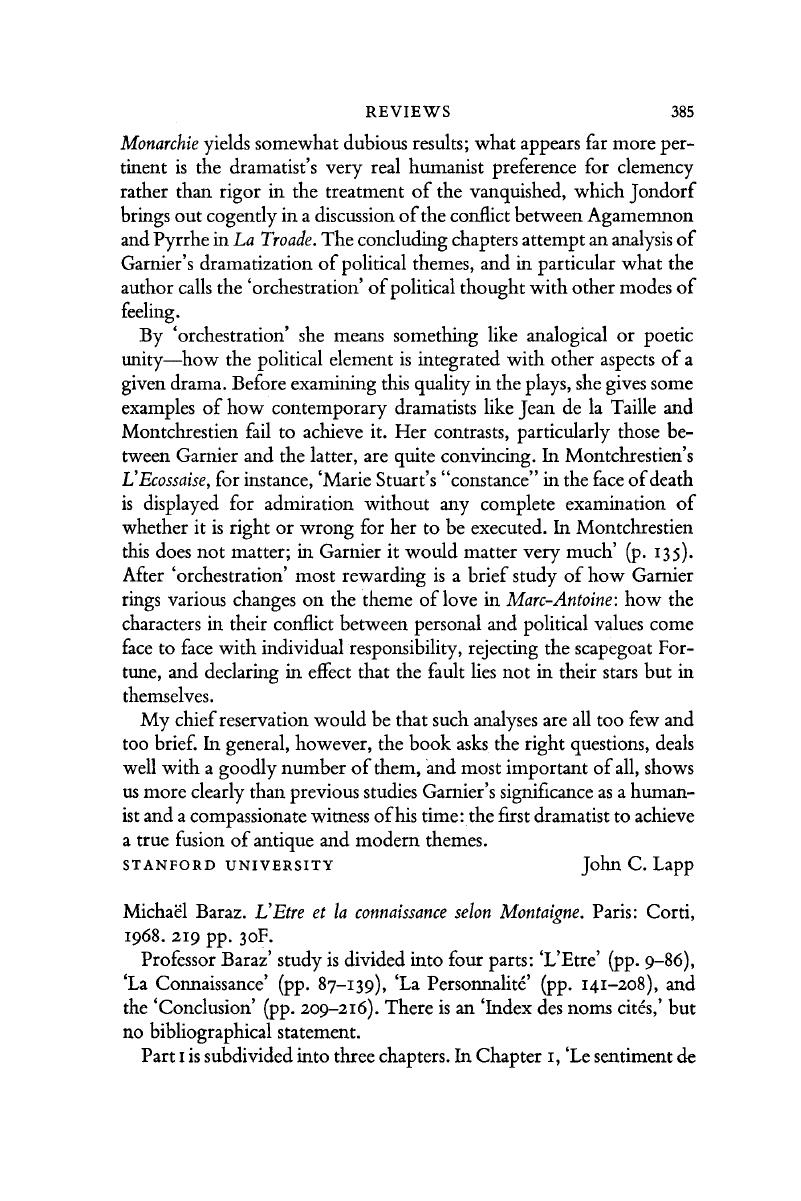No CrossRef data available.
Published online by Cambridge University Press: 20 November 2018

1 The first nine pages of the chapter, slightly revised, had appeared under the same title in Cahiers de l'Association Internationale des Etudes Francaises, no. 14 (March 1962), 211-224.
2 Except for minor changes, the excision of two paragraphs, and the addition of a concluding paragraph, this chapter reproduces for the most part Baraz’ article, ‘Les images dans les Essais de Montaigne,’ Bibliotlièque d'Humanisme et Renaissance, 27 (1965), 361-393.
3 Baraz’ chapter, ‘Sur la notion d'inscience chez Montaigne,’ in De Ronsard à Breton … Hommages à” Marcel Raymond (Paris, 1967), pp. 42-50, provided an important nucleus for this treatment of ‘inscience.’ It is curious that Baraz nowhere refers the reader to Montaigne's use of this almost untranslatable word in ‘De la phisionomie': ‘Je dis pompeusement et opulemment l'ignorance, et dys la science megrement et piteusement; (c) accessoirement cette-cy et accidentalement, celle-là expressément et principalement. Et ne traicte à point nommé de rien que du rien, ny d'aucune science que de celle de l'inscience’ (1187, Pléiade-Thibaudet, 1950).
4 His article, ‘Sur la structure d'un Essai de Montaigne (III, 13: “De l'Expérience“),’ Bibliothàque d'Humanisme et Renaissance, 23 (1961), 265-281, has been integrated, after revision, into the analysis.
5 ‘Constantin Brunner’ is the nom deplume of Louis Wertheimer (1862-1937). Three of his works seem particularly relevant to Baraz’ study: Die Lehre von den Geistigen und vom Volk (1908); Unser Christus oder das Wesen des Genies (1921); Kunst, Philosophie, Mystik (1940). The whole no. 375 of Lei Cahiers du Sud, vol. 57 (1964) is devoted to Brunner. A useful bibliography appears on p. 124.
6 Baraz, M., ‘Prérenaissance au 20e siècle,’ Les Cahiers du Sud, no. 375, vol. 57 (1964).